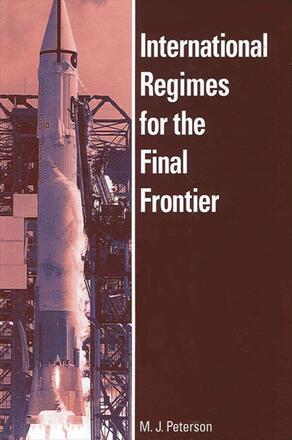
International Regimes for the Final Frontier
Alternative formats available from:
Examines the negotiations between nations that lead to international agreements regulating human activity in outer space.
Description
Neither rational choice theory, with its emphasis on interest calculation, nor sociological institutionalist theory, with its emphasis on identity-defined rule following, indicates how governments determine which of their multiple interests or identities are at stake in a particular situation or how they develop mutual comprehension of each other's goals. International Regimes for the Final Frontier addresses these gaps by tracing how governments approach an unfamiliar issue—in this case, international agreements regulating human activity in outer space between 1958 and 1988—and examines three ways situation definitions channel governments' approaches to issues or problems.
M. J. Peterson is Professor of Political Science at the University of Massachusetts at Amherst and is the author of Recognition of Governments: Legal Doctrine and State Practice, 1815–1995.
Reviews
"International Regimes for the Final Frontier goes a long way in encouraging the progressive development of international law in the new field of space law, not only because of the nature of the major topics involved in this ever-growing discipline but also because of the clarity with which the different chapters are addressed … Two of the most striking features of [Peterson's] book are that it is useful to both academics and practitioners and that, although published in 2005, it remains quite relevant. " — American Journal of International Law
"This book is a rare find: a work that simultaneously makes contributions to the scholarly understanding of the politics of outer space and to political science. It has the signal virtue of being based on extensive archival research. The empirical material vastly surpasses the scattered and largely speculative literature on the actual negotiations on outer space regime formation. " — Daniel H. Deudney, Johns Hopkins University